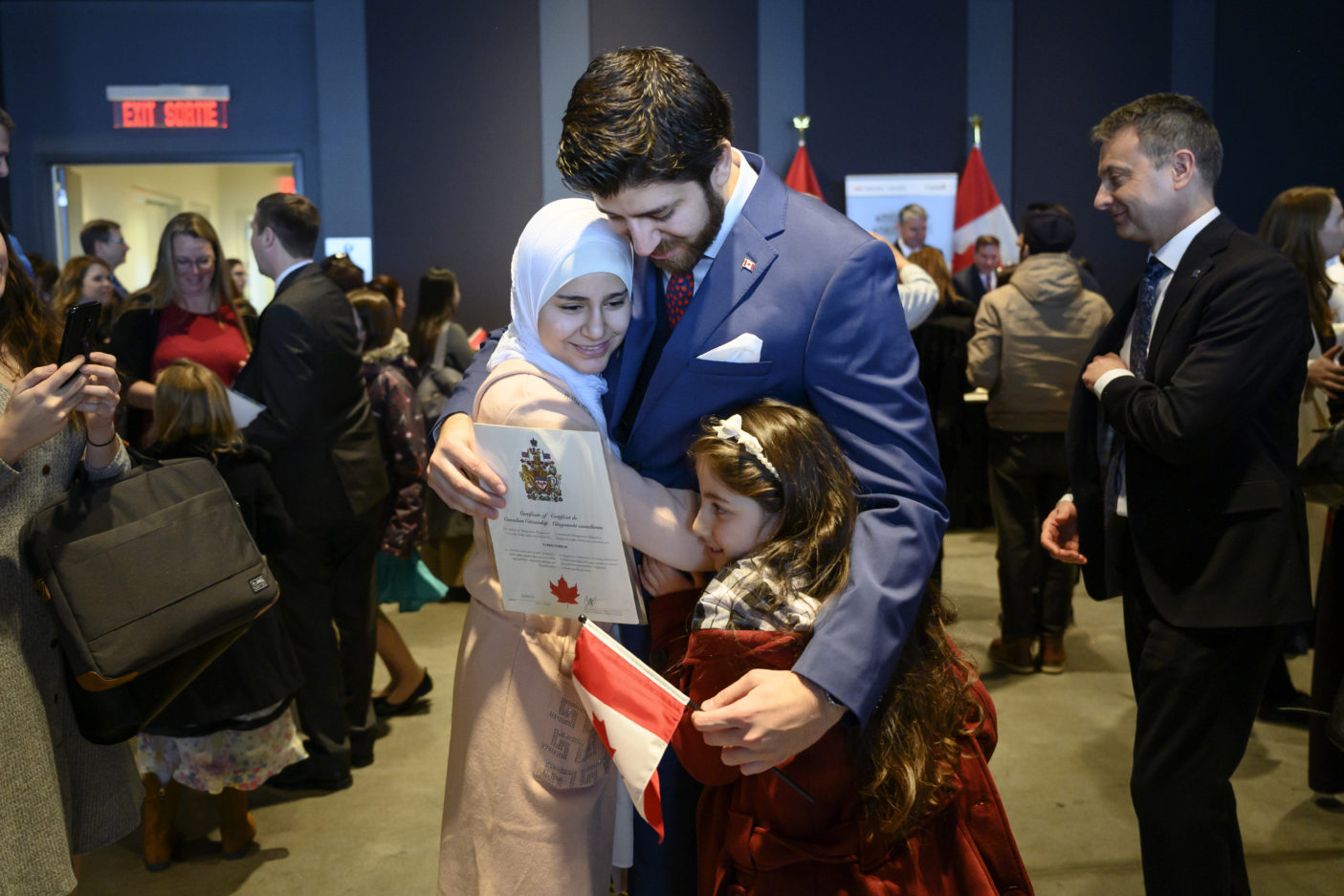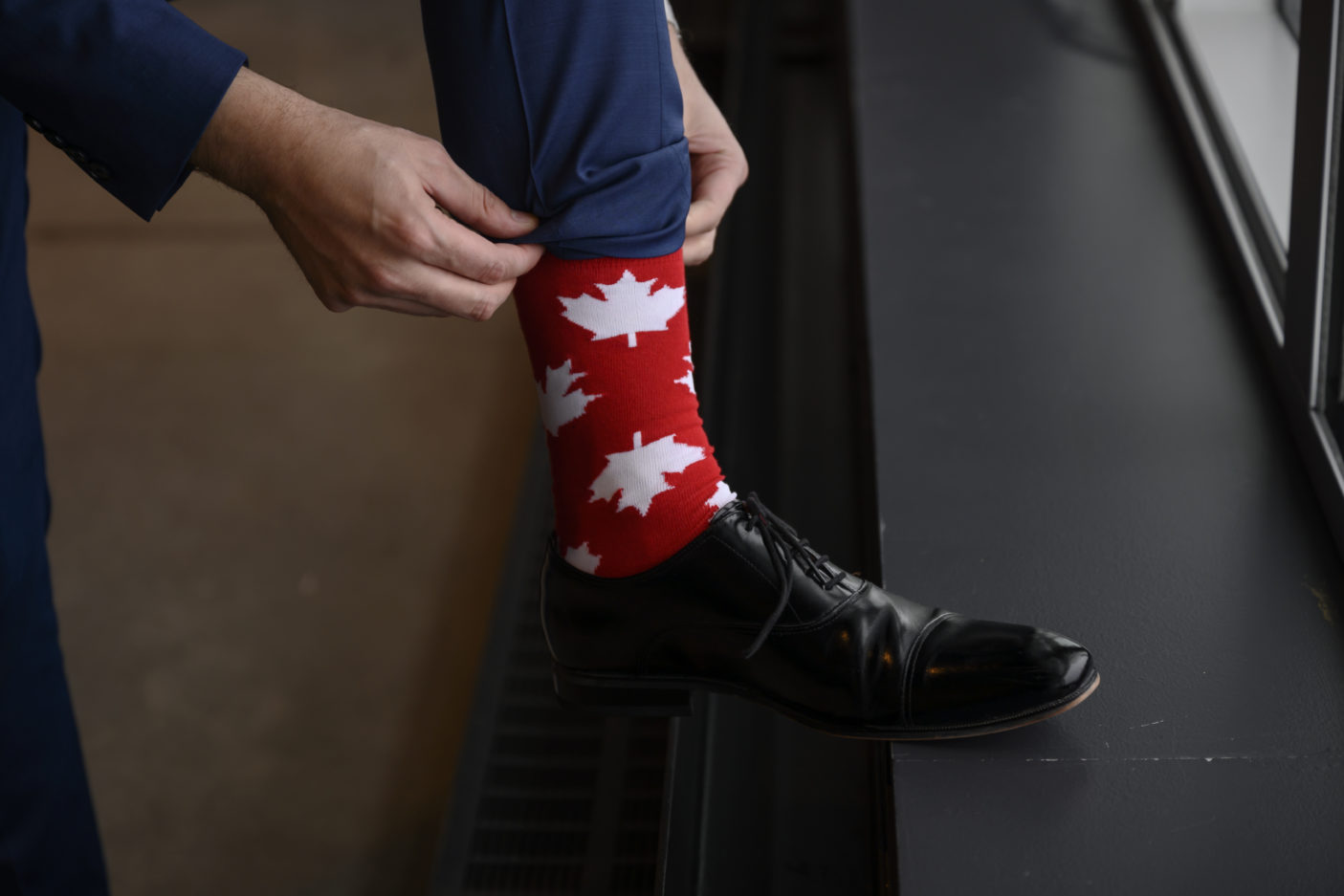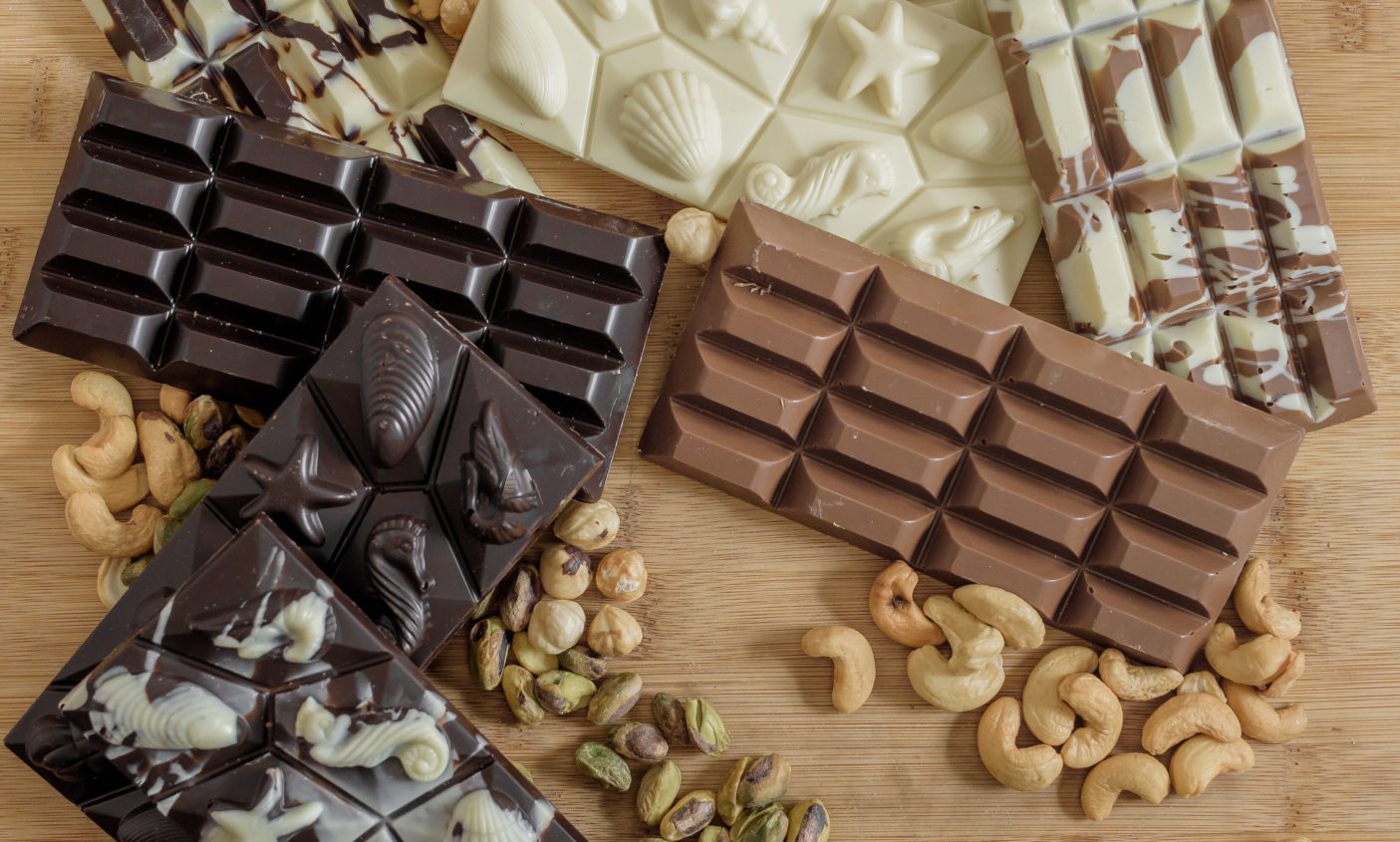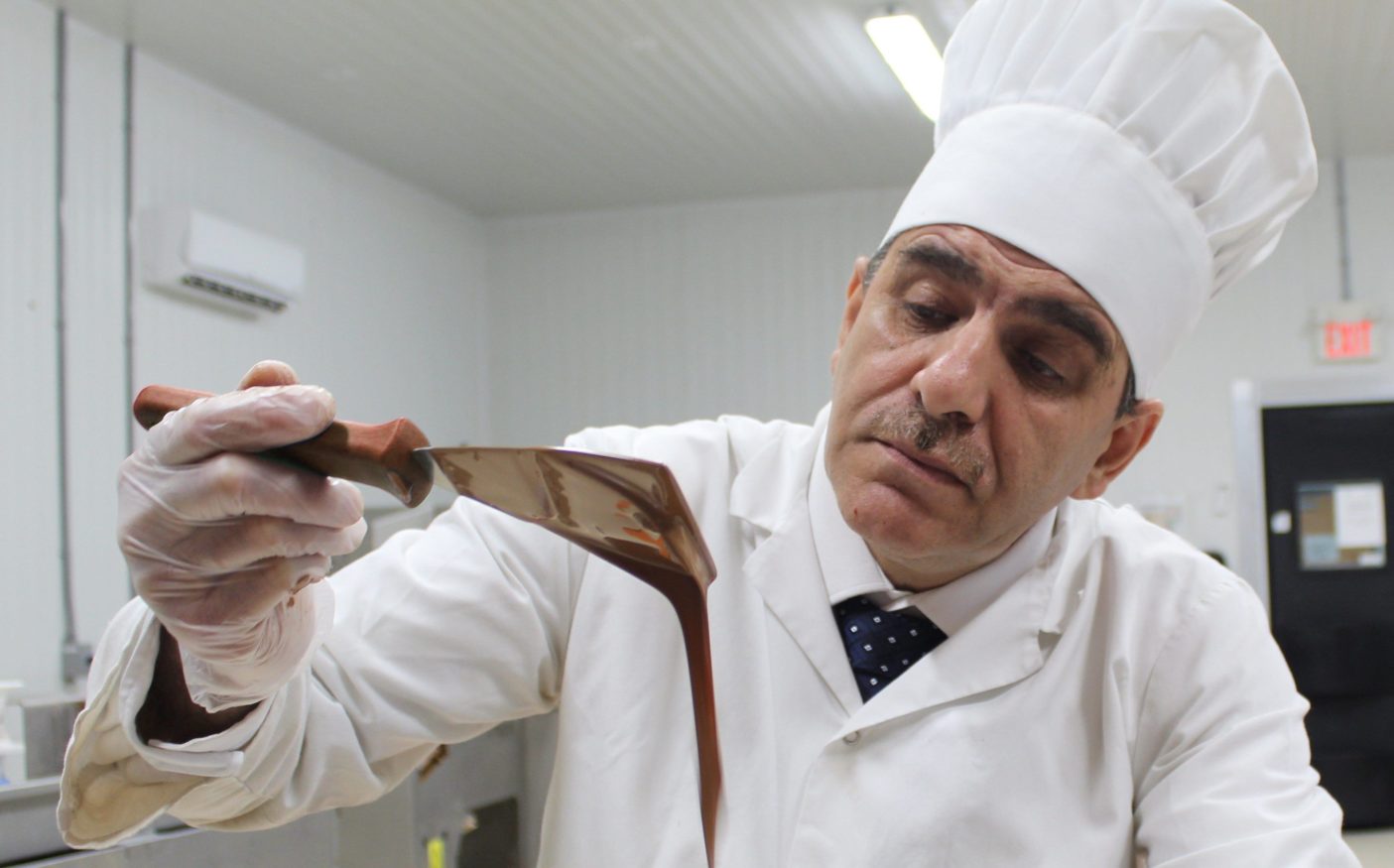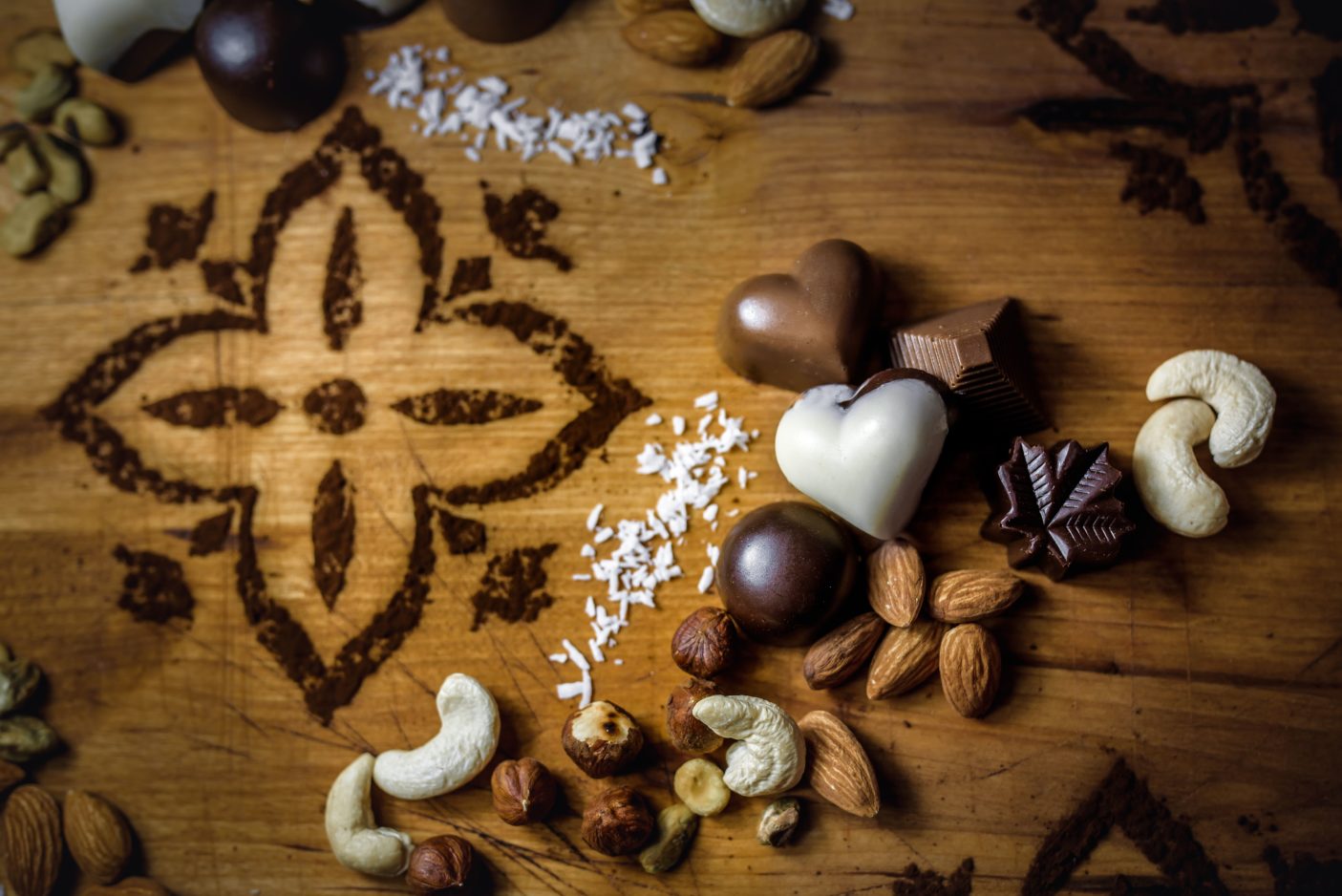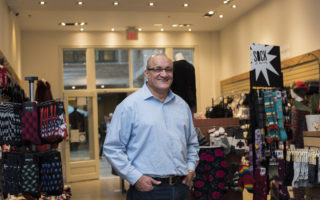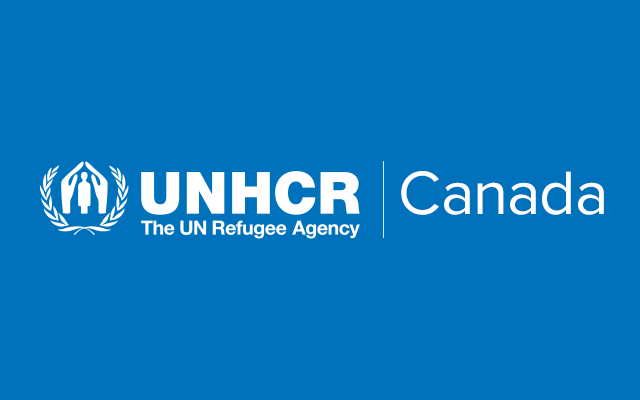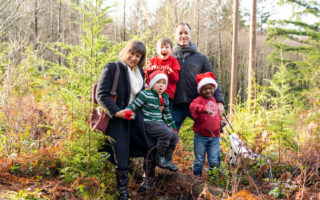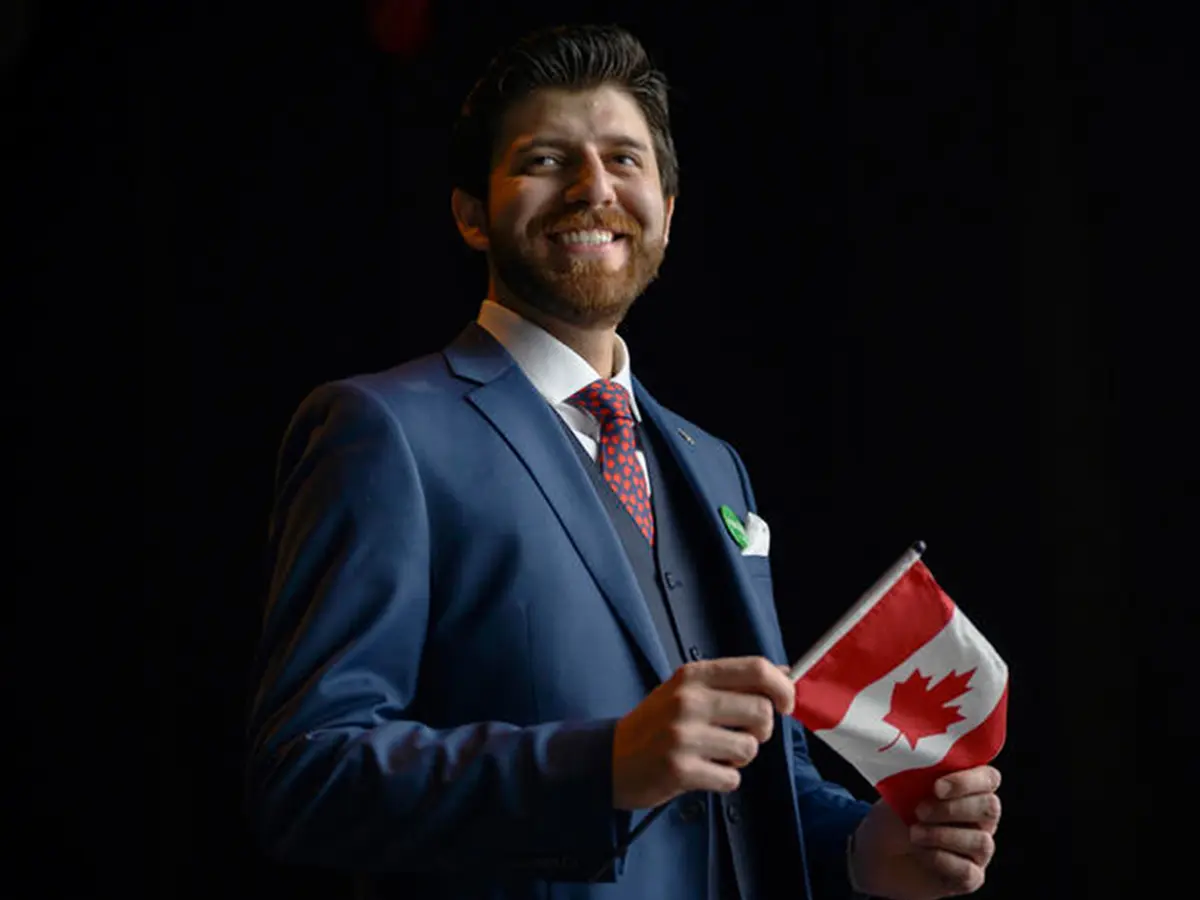
Tareq Hadhad, a Syrian refugee and founder of Peace by Chocolate, poses prior to his Canadian citizenship ceremony at Pier 21 in Halifax, Nova Scotia on Wednesday, January 15, 2020. ©UNHCR/Darren Calabrese
Wearing red and white socks emblazoned with the Maple Leaf, Tareq Hadhad wore Canada’s national symbol for the latest step in his extraordinary journey from Syrian refugee to chocolate maker —and now, Canadian citizen.
By Lauren La Rose
The Peace by Chocolate founder was all smiles as he joined 48 fellow new flag-waving Canadians in taking the oath of citizenship in Halifax. The ceremony was held at Pier 21, a national historic site deeply symbolic of Canada’s storied history of welcoming newcomers to its shores.
Pier 21 was a port of entry to Canada for one million immigrants between 1928 and 1971. It now hosts the Canadian Museum of Immigration at Pier 21.
“It’s really magical… it’s phenomenal,” said Tareq, 27, recalling the whirlwind of emotions surrounding the ceremony and his newly minted citizenship status.
“I was thinking about Canadians from coast to coast to coast. I was certainly thinking about all of those who sacrificed their lives so that we have such freedoms in this country.”
Tareq’s business, Peace by Chocolate, was born in his home kitchen in Antigonish, a town of around 5,000 people on the north shore of Nova Scotia, where he resettled after arriving in Canada in December 2015.
Tareq said he was on one of the first flights out of the Middle East after the Canadian government announced a plan to resettle 25,000 Syrian refugees in Canada by the end of February 2016; this was in the wake of the ongoing conflict and escalating humanitarian crisis in Syria. Tareq’s father, Isameddin, mother, Shahnaz, sisters, Alaa, Batoul and Taghrid, and brother, Ahmad, joined him three weeks later.
Peace by Chocolate launched in 2016. And in the years since, the company’s inspiring origins and its range of confections offering messages of peace, hospitality and forgiveness have resonated with chocolate lovers the world over.
“It’s really magical… it’s phenomenal,” said Tareq, 27, recalling the whirlwind of emotions surrounding the ceremony and his newly minted citizenship status.
Prime Minister Justin Trudeau praised the family business during an address to the Leaders Summit on Refugees at the United Nations in New York in 2016, helping further propel the then-fledgling business into the global spotlight.
“Certainly, it is a family heritage and it’s a tradition,” said Tareq. “It’s the type of skills and talent that we brought with us here.”
The Hadhad family had previously run a chocolate business for more than 30 years in the Middle East.
“My father started making chocolate in the home kitchen and then he opened shops and one of the largest chocolate factories in the region,” Tareq recalled of the business, which was established in 1986.
Soon they were exporting all over the world from their base in Damascus, Syria; they also sought to share their good fortune with others in need.
“The company was also aiming towards being a social enterprise, and supporting those who are less fortunate in the community.”
After civil war broke out in Syria in 2011, their hopeful aspirations for the future were cut abruptly short. The factory was bombed in 2012.
“Life became so hard,” Tareq recalled. “I’ve lost many family members that were shot, they were killed.”
“All aspects of our life were destroyed in the war. Whether it’s from my dad’s business, my mother’s initiative that she launched in the Middle East … and my siblings, they did not feel safe to go to school anymore because a mortar rocket can hit that school at any point.”
In March 2013, the family fled to Lebanon and registered as refugees with UNHCR. They lived there several years before Tareq and his family decided to apply for resettlement in Canada.
They were able to make their dreams of a fresh start in Canada a reality through the Blended-Visa Office Referred Program (BVOR) after the people of Antigonish decided to fundraise to bring a refugee family to their community.
Supported by the Canadian government, the BVOR program matches refugees identified for resettlement by UNHCR because of their specific vulnerability with private sponsors in Canada. Costs are shared between sponsors and the federal government, with each party providing six months of financial support.
“I arrived here with nothing,” Tareq said. “Just with lots of hope for the future, and gratitude towards everyone who have done their best to make us feel that we are at home.”
Tareq recalled the first time they made and shared a few pieces of chocolate at a community gathering where “everyone loved them.” The positive feedback encouraged them to bring their chocolate-making skills to a new enterprise whose Peace by Chocolate name holds significant meaning.
“It was a message of bringing the world together and expressing that peace is very important and we need it every single moment of our lives, because without peace I would not have been able to restart my life here in Canada, or have my family to come here, start a business.”
Sharing their good fortune to help others in need was another tradition the family carried with them from Syria to Canada. In 2016, Peace by Chocolate donated a month’s profits to the relief efforts in support of those fleeing wildfires in Fort McMurray, Alberta. They have also pledged to donate between three and five per cent of all profits to the Peace on Earth Society, a Nova Scotia-based organization that provides funds to peace-building projects around the world.
“Without peace I would not have been able to restart my life here in Canada, or have my family to come here, start a business.”
Tareq said Peace by Chocolate plans to hire 50 refugees by 2022. They would also like to offer marketing and distribution mentorship to support 10 businesses run by refugees. The company is in discussions to partner with settlement organizations in Canada to refer candidates and businesses. They hope to start implementing the initiative by the fall of 2020.
“As a small business stepping into the medium size (category), we felt the responsibility, and now is the time really to give back to those who had the same experiences as us,” said Tareq, who now employs 55 full-time and seasonal employees. “But they want the first step, right? They want to get hired, to get the Canadian experience, and to get a profile in this country so they can start moving forward.”
“We also noticed that refugees, they tend to be entrepreneurs. They are risk-takers and they are changemakers,” he added. “So, they want to create something different and unique in the community because they know that they came here not to take but to contribute.”
Tareq shows no sign of slowing down away from the business, either. A book on Peace by Chocolate by Halifax-based journalist Jon Tattrie is due out this fall. And Tareq says his family members also plan to follow his lead in becoming Canadian citizens. There are now 17 of them in Canada, including his nephew Omar Al Kadri, niece Sana Al Kadri, his uncle, cousin and their families.
“They have shared some laughs and smiles and tears with everyone who were getting their citizenship. The whole room was full of excitement and emotions for sure.”
“For my family, I guess it also comes back to the point where they were thinking how their life has changed in the past four years significantly. They know now that they should never give up.”



